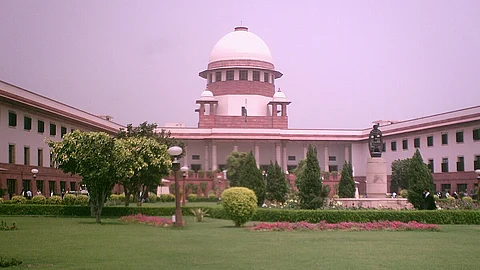The Supreme Court on Monday declined to entertain a petition challenging a recent ruling by the Allahabad High Court, which stated that acts such as grabbing a minor’s breasts, breaking the string of her pyjama, and attempting to drag her beneath a culvert do not constitute an offence of rape.
In a case involving an 11-year-old girl from Kasganj district in Uttar Pradesh, the Allahabad High Court ruled that the accused, Pawan and Akash, would be charged with aggravated sexual assault rather than attempted rape. The court altered the charges against the two, directing that they be tried under Section 354-B of the Indian Penal Code (IPC), which pertains to assault or use of criminal force with intent to disrobe and Sections 9 and 10 of the Protection of Children from Sexual Offences (POCSO) Act. The trial court previously framed charges against the accused under Section 376 (rape) of the IPC, and Section 18 of the POCSO Act (attempt to commit offence).
After the case was dismissed, the Supreme Court bench—Justices Bela M. Trivedi and Prasanna B. Varale—did not interfere with the ruling. When the petitioner’s counsel referenced the ‘Beti Bachao, Beti Padhao’ scheme during arguments, Justice Trivedi cut off the argument, suggesting not to lecture in court. The bench ultimately dismissed the plea.
The verdict by the Allahabad High Court has sparked widespread criticism from legal experts, public figures, and activists. Numerous individuals raised disagreement with the consequences of such judicial explanations on the safety of minors. Senior solicitor and Supreme Court Bar Association president Kapil Sibal stated that such judgments affect public faith in the judiciary. He also stated that judges should not provide observations that mislead the wider society.


